Date: Tue 24 Dec 2013
Matching Commentaries:
Commentary for Exeter Riddle 17
This week’s translation is a guest post from Wendy Hennequin. Wendy is an Associate Professor at Tennessee State University where she is currently researching the connection between Grendel’s mother and Beowulf’s kings, as well as the comitatus bond in contemporary literature. We’re posting her translation and commentary back-to-back because the commentary discusses issues of translation and so is best read alongside the poem.
Original text:Ic eom mundbora minre heorde,
eodorwirum fæst, innan gefylled
dryhtgestreona. Dægtidum oft
spæte sperebrogan; sped biþ þy mare
5 fylle minre. Frea þæt bihealdeð,
hu me of hrife fleogað hyldepilas.
Hwilum ic sweartum swelgan onginne
brunum beadowæpnum, bitrum ordum,
eglum attorsperum. Is min innað til,
10 wombhord wlitig, wloncum deore;
men gemunan þæt me þurh muþ fareð.
Translation:I am herd-protector, hand-ruler of the flock,
fast in wire-fences, and filled inside
with army-treasures. Often, in daytime,
I spit spear-terror. My success is greater,
5 luck-might, with fullness. The lord sees how
battle-arrows from my belly fly.
Sometimes, I begin to swallow dark
brown battle-arms, bitter spear-points,
painful poison-spears. Precious to the proud
10 is my bright womb-hoard, wonderful stomach.
People remember what passes through my mouth.
Click to show riddle solution?
Ballista, Fortress, Quiver, Bee-skep, etc
Notes: Here are some notes on my translation.
- Line 1. I have rendered mundbora twice in this line, though it appears only once in the original text. Clark Hall glosses mundbora as “protector” (242), though it literally breaks down to “hand-ruler.” I have used the second half-line, translated literally as “of my flock,” to make a kenning in the first half-line and preserve the line’s alliteration.
- Line 5a: This half-line translates literally as “with my fullness,” which doesn’t have enough stresses to complete a half-line. I have added, “luck-might,” as a variation of sped in the previous half-line, to fill out 5a.
- Line 9a: “Painful poison-spears” is a literal translation; as a poet, I would have preferred the stronger meter of “Poison pain-spears.”
- Lines 9b-10b: I have rearranged these three half-lines for grammatical sense and alliteration. I have taken a slight liberty with the meaning of the word til, “good, apt, suitable, useful, profitable: excellent: brave: astounding,” by rendering it “wonderful” (Clark Hall 341).
This riddle appears on folio 105r of The Exeter Book.
The above Old English text is based on this edition: Elliott van Kirk Dobbie and George Philip Krapp, eds, The Exeter Book, Anglo-Saxon Poetic Records 3 (New York: Columbia University Press, 1936), page 189.
Note that this edition numbers the text Riddle 15: Craig Williamson, ed., The Old English Riddles of the Exeter Book (Chapel Hill: University of North Carolina Press, 1977), pages 77-8.
Tags:
anglo saxon
exeter book
riddles
old english
solutions
riddle 17
Related Posts:
Exeter Riddle 23
Exeter Riddle 27
Exeter Riddle 60
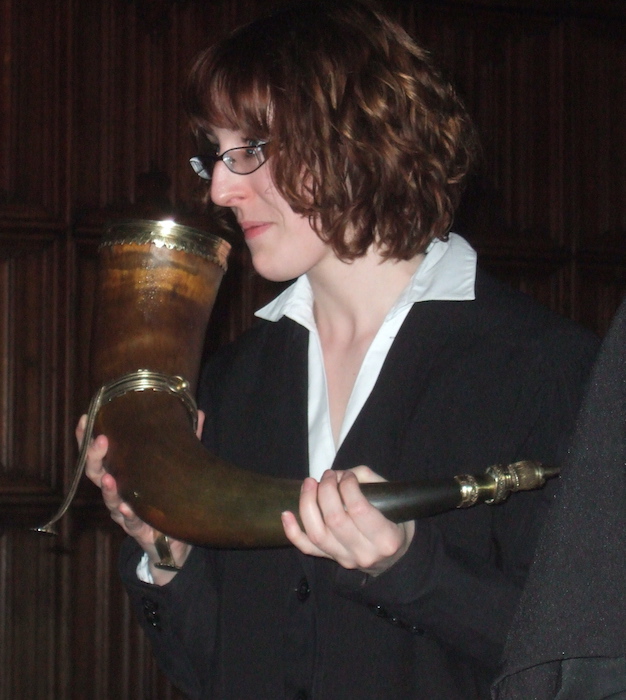
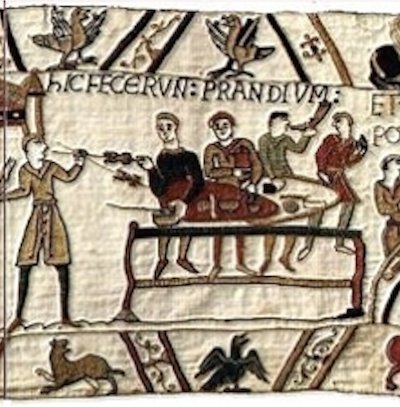
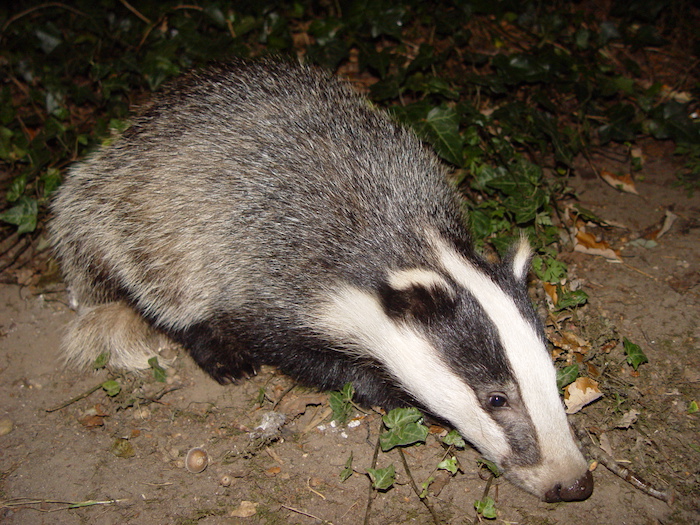

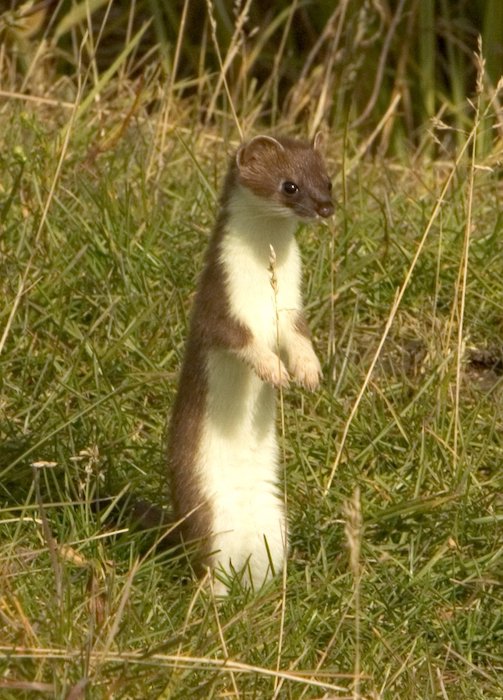
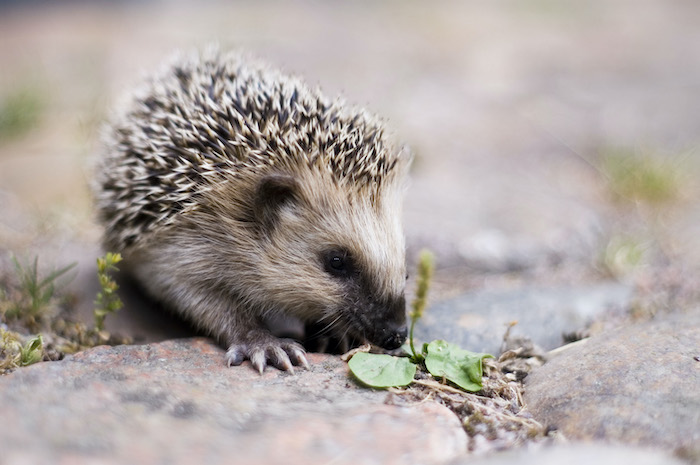
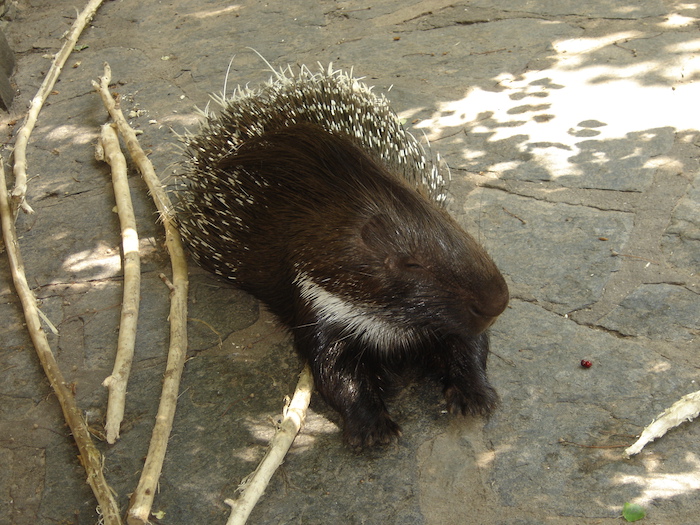
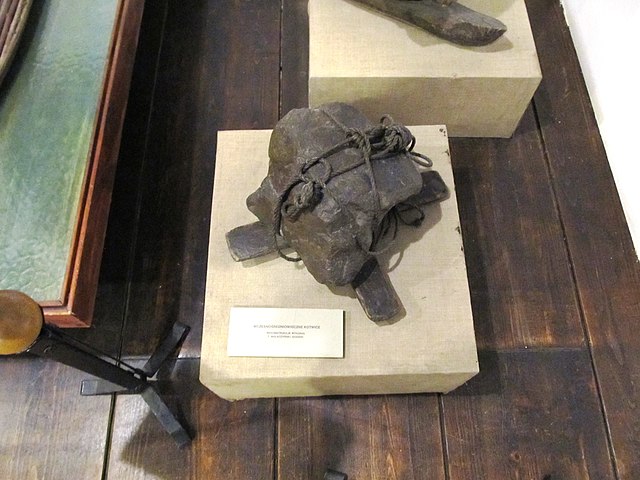
Commentary for Exeter Riddle 13
MATTHIASAMMON
Date: Tue 08 Oct 2013Matching Riddle: Exeter Riddle 13
Having moved into the realm of four-footed animals with Riddle 12, we now leave the oxen to plough his lone furrow and return – supposedly – to the realm of birds. That being said, we immediately encounter the riddle’s first paradox: both the first and last half line refer to the riddle object’s ability to walk or tread (tredan) on the ground (turf and lond). However, some of the motifs used in this riddle may be familiar by now: the feorg cwico (living spirit) mentioned in line 3 takes us back to Riddles 9, 10 and 12 and strongly suggests that we are dealing with an animal. The hrægl of line 9 recalls the swan’s feathers being described by the same term back in Riddle 7. And thus, the argument goes, we are dealing with a kind of bird. At the centre of the riddle is again the transformation that this creature undergoes, when it is awoken through God’s might and gains its living spirit. However, the riddler wants us to puzzle over a more serious paradox: what kind of creature lives, walks and eats even though its skin is hanging on the wall? And who are the six brothers and four sisters of the first two lines?
Early solutions to this riddle focused on the transformation aspect and suggested, for example, a caterpillar which metamorphoses into a butterfly. But I’m sure you’ll agree that this does not really cover all the clues the riddle gives us. A more metaphorical solution was that of ten fingers in a glove (which accounts for the numerological clue and gloves were made out of a fell or skin, but the second part of the riddle doesn’t really fit the metaphor). It was the German scholar Moritz Trautmann who first hit upon the solution of "chick" or "chicken." This quickly gained general acceptance as it matches something we know from the real world: in this reading, the "skin on the wall" is the membrane on the inside of the egg that a newly-hatched chick leaves behind, its "renewed" garment is its new down. Furthermore, the idea of the chick shedding its skin as its distinctive aspect seems to have been part of a wider riddle tradition. There are several Latin riddles that play on this phenomenon; in fact most of them are boiled down (the pun is courtesy of Martha Bayless, who edited one of these Latin riddles) to a couple of lines or so but they all mention the shedding of the skin. On the other hand, one of our readers, Linden Currie, suggests that the "skin hanging on the wall" may in fact refer to the caul of a new-born calf which was used in early medieval Iceland to cover the window-holes in houses when stretched over a frame and made translucent to let light in. Might we not imagine something similar for early medieval England? Such an object, Linden argues, could easily be described as sweotol in the sense of "transparent" as well as "visible" (gesyne). And would the description of something "treading the ground" not fit a calf better than a chicken? Such a solution would also yoke (or yolk?) this riddle to its predecessor.*
At any rate, I hear you cry, what of the six brothers and four sisters? Back in 1950, Erika von Erhardt-Siebold hit on an ingenious solution to this part: she suggested that the answer to the riddle in Old English is ten ciccenu or "ten chickens." Now count the number of consonants and vowels in this phrase and what do you get? Six…and four! Brilliant! Only…the word ciccenu doesn’t really exist in Old English, at least in the texts we have. The standard Old English (or West Saxon) version of this word would be cicenu which ruins our nice solution (and it should really be tien, but we won’t mention that). But we can’t rule out that this is a possible Northern spelling, and nobody has really come up with a better solution – the most recent commentators also accept it, though Patrick Murphy is slightly unhappy with the fact that the "ten" of the answer refers both to the number of chickens in the solution and to the letters in the "name" of the solution (though this is again not unknown in medieval riddle tradition in general).
Ten chickens! What are the chances of finding a photo with the right number? Image from Wikimedia Commons (licence: CC BY-SA 4.0).
Murphy has also pointed out that this riddle may evoke other associations: some creatures who lose their garments, are "awoken" by their creator and have to walk the earth and are forced to eat what they can get through their own toil? I hope you’ve realised this is of course the story of Adam and Eve being cast out of Eden. Murphy finds some parallels between the language of this riddle and Old English poetic versions of the Edenic story. Somebody who focuses on this allusive metaphorical reading might come up with the solution Adam ond Eue – and if we count the consonants and vowels there…I assume you can guess what the answer is. Murphy is not necessarily disputing the accepted solution but it is a reminder that it is worth keeping in mind that riddles can work on several levels.
By the way, despite all this work, there are some bits in the riddle that have so far defied solution, in particular the haswe blede of line 9. Both of these words have a range of meanings – if we look at the work of previous translators and commentators, the average meaning is something like "grey(ish) fruit," though nobody has been able to come up with a convincing explanation beyond "the stuff that new-born chicks eat" – which, like greyish fruit, is slightly unsatisfying. Any thoughts on this (and anything else) would be welcome in the comments!
Not wishing to overegg the pudding, I have chickened out of giving you the full arguments, but if you want to brood on it a bit more, here are some references you can follow up on:
References and Suggested Reading:
Bitterli, Dieter. Say What I am Called: The Old English Riddles of the Exeter Book and the Anglo-Latin Riddle Tradition. Toronto: University of Toronto Press, 2009, pages 115-21.
Murphy, Patrick J. Unriddling the Exeter Riddles. University Park, PA: Pennsylvania State University Press, 2011, pages 53-60 and 91-95.
von Erhardt-Siebold, Erika. “Old English Riddle 13.” Modern Language Notes, vol. 65 (1950), pages 97-100.
Williamson, Craig, ed., The Old English Riddles of the Exeter Book. Chapel Hill, NC: University of North Carolina Press, 1977, pages 168-70.
*If you want to know more details, Linden can be contacted under linden.currie(at)gmail.com.
Tags: anglo saxon exeter book riddles old english solutions riddle 13
Related Posts:
Commentary for Exeter Riddle 7
Commentary for Exeter Riddle 9
Commentary for Exeter Riddle 10
Commentary for Exeter Riddle 12
Exeter Riddle 13